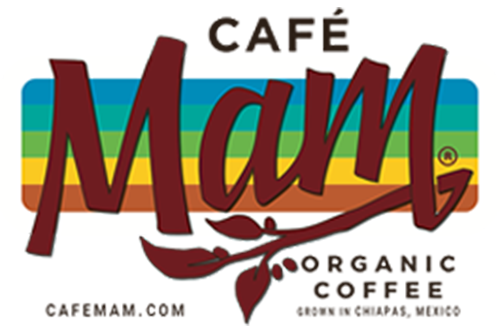Is it organic? As more consumers ask this question — seeking certified organic labels on everything from boxed soups to cooking oil — producers are building networks with farmers locally and internationally to ensure the organic integrity of their products. Some do this by producing their own ingredients. Others go to great lengths to establish trusted relationships with reliable suppliers. Either way, the goal is the same — to get the quality ingredients they need, when they need them.
Take Chuck Eggert, the co-founder and former CEO of Pacific Foods, who starts his day walking his one-year-old puppy and sipping a glass of milk from dairy cows raised on his family farms.
When the company began in 1987 as a small co-packing facility, he didn’t imagine that one day he’d be working in the fields with his grandchildren. But in 2000, when Pacific Foods faced a shortage in organic milk for its creamy soups, Eggert decided to produce his own to avoid future supply chain gaps. He and his family bought land in Oregon’s Willamette Valley and began the multiyear process of converting Eggert Family Farms to organic. It’s been hard work, but it brings him great joy.
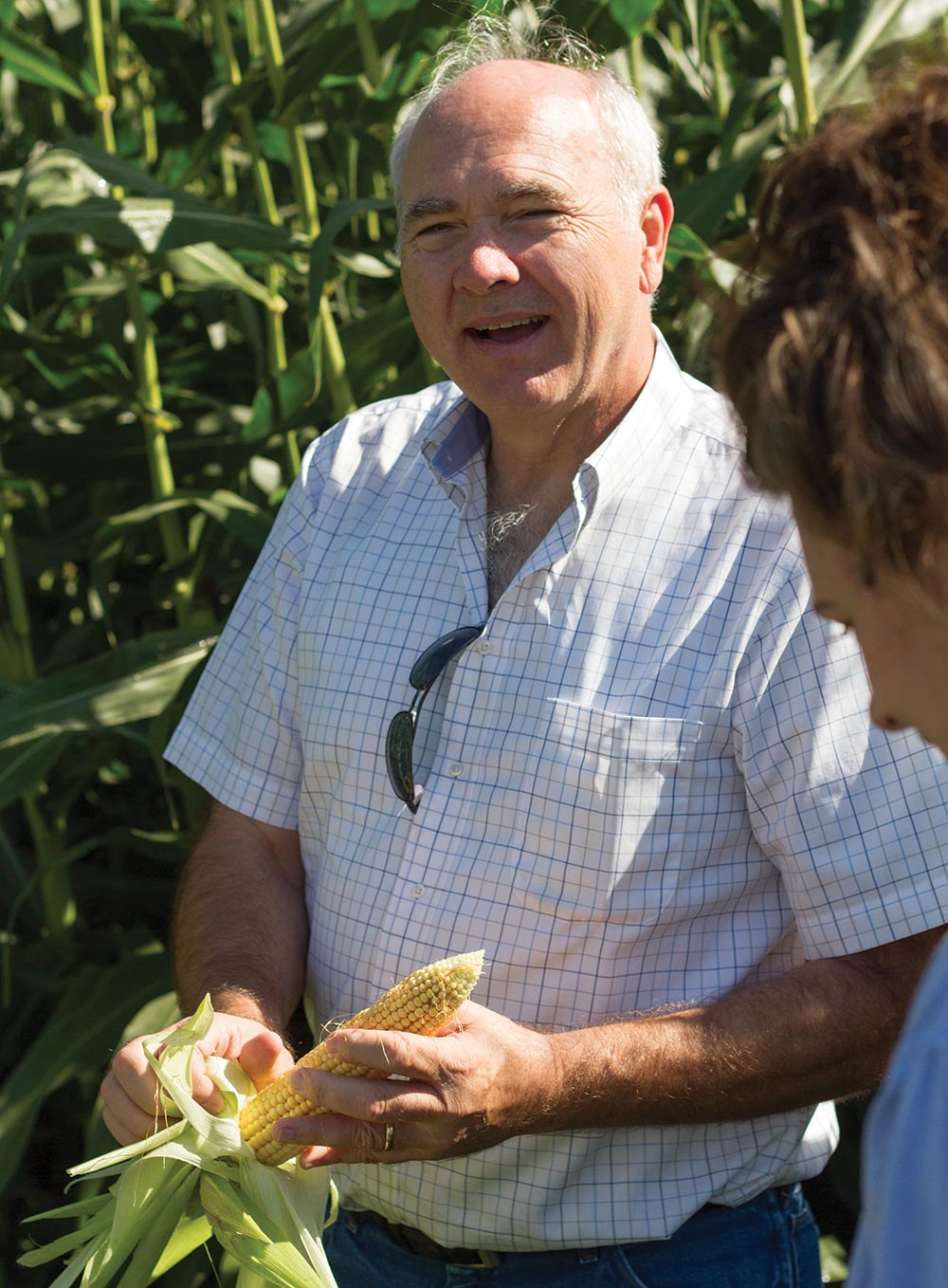
“Chopping corn silage for our dairy cows is the most fun thing I get to do all year,” said Eggert. “Farming is therapy for me. Cutting corn, walking with the cows, sharing the harvest duties with my two sons and grandchildren…there’s nothing better.”
The benefits to food producers who bring farming in-house, however, go beyond personal fulfillment.
Organic demand exceeds local capacity
Organic food sales totaled $47 billion in the United States in 2016, and 82 percent of consumers report having organic products on their pantry shelves, an increase of 3.4 percent over the previous year. To meet growing demand, analysts estimate that between one to five million acres of U.S. farms would need to be converted to organic production. But when it takes three years to transition a conventional field to certified organic, farmers can’t grow enough organic crops fast enough to meet consumer demand.
As a result, U.S. organic imports have grown to 1.6 billion annually in 2016, up from one-half billion in 2012 (a more than 200 percent increase). But there are inherent challenges for food producers when using imported ingredients, including variable (and often higher) costs for raw materials and inconsistencies in quality and freshness across different growing seasons and coming from different farms.
One of the main reasons that Eggert focused on raising his own dairy cows, chicken and turkeys (and the feed that sustains them) on more than 4,000 acres of farmland was that supply for Pacific Foods could remain steady year-round.
“We were running our manufacturing facility 24 hours a day, seven days a week,” said Eggert. “If the team was expecting milk at a specific time, and it didn’t show up, there would be gaps in production. But with sourcing from Eggert Family Farms, milk could be delivered to the factory floor within 24 to 48 hours from milking.”
Innovation takes many forms. Manufacturers with novel supply chains are not only able to meet growing consumer demand for organic products and ensure product consistency, but they are also improving working conditions and boosting global economies.
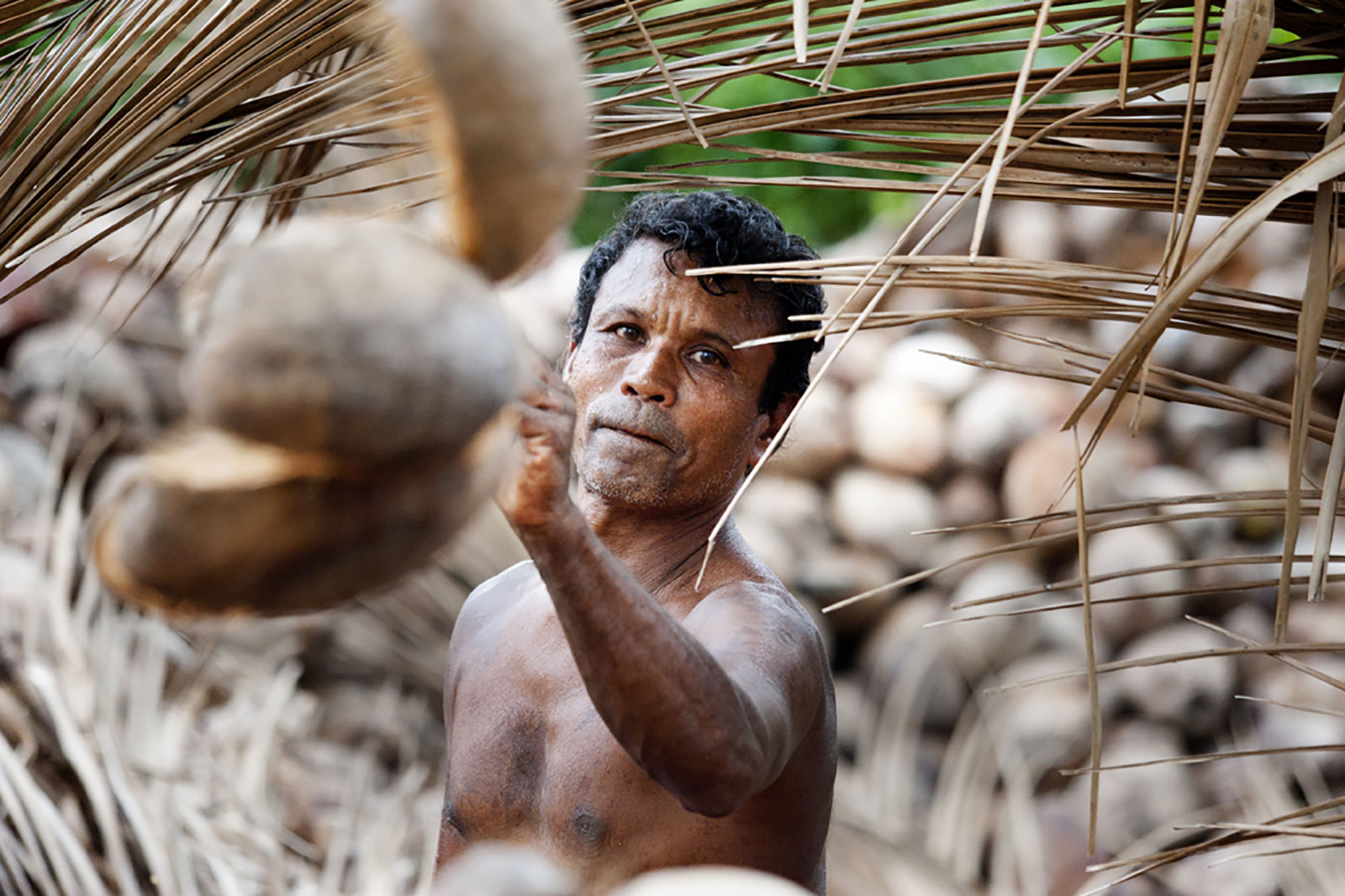
Dr. Bronner’s addresses organic needs and workplace conditions
Dr. Bronner’s is one such pioneer with a vertically integrated organic and fair trade supply chain for its cosmetic and cleaning products, and food-grade virgin coconut oil, which was added to its product suite in 2012.
Serendipol, Dr. Bronner’s sister company, includes more than 1,260 farmers on 20,000 acres, processing 30 million coconuts each year. The project evolved from Dr. Bronner’s support of relief efforts in Sri Lanka following a devastating hurricane in 2004. At the same time, they were interested in growing beyond organic certification to focus on labor practices through fair trade certification. Coconut oil is used in all of Dr. Bronner’s soap products, and given Sri Lanka’s history as a coconut region, the idea for Serendipol was born as a way to benefit all parties — the community would regenerate its economy, and Dr. Bronner’s would have a reliable and consistent source for organic and fair trade coconut oil.
“When we projected our sales based on what we had seen historically, there was not enough organic and fair trade coconut oil in the world for us to become fair trade certified,” said Darcy Shiber-Knowles, senior quality, sustainability and innovation manager for Dr. Bronner’s. “Which meant that we had to develop the supply chain.”
Serendipol, which began in 2007 with an abandoned coconut mill, two shipping containers for an office and dedicated Sri Lankan partners, now employs 300 people. Workers in the plant enjoy opportunities for professional development and a participatory management style.
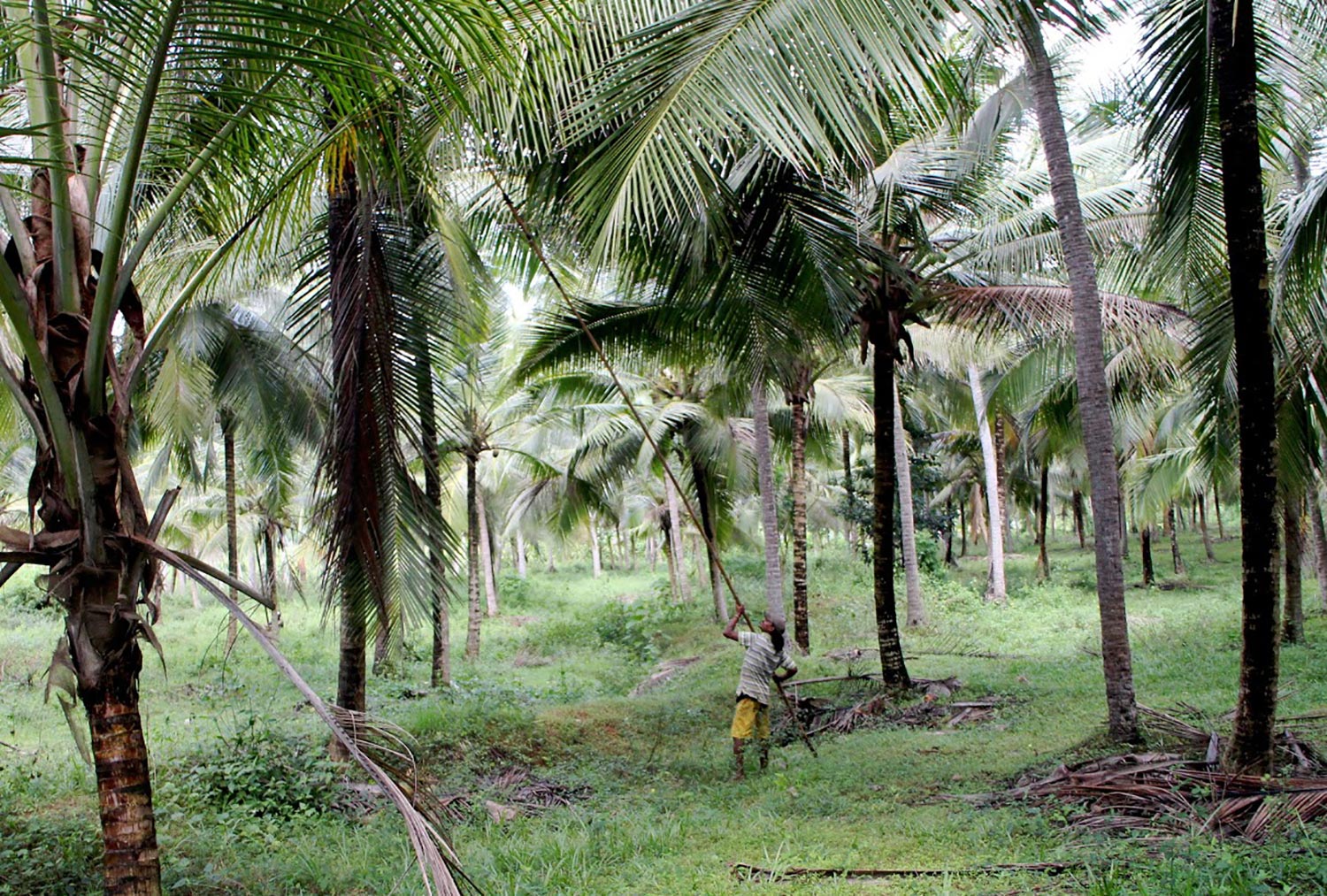
Fair trade certification guarantees fair prices set by the farmers and safe conditions for farm and factory workers. Fair for Life fair trade certification also includes a premium (typically 10 percent) that is agreed upon by the producer group and the buyer that goes into a fund democratically administered by the community where the raw materials are produced. At Serendipol, the funds have supported composting, critical medical equipment for clinics, school renovation and vital infrastructure like bridges, road and electricity to connect rural villages.
The success at Serendipol prompted Dr. Bronner’s to look at all of its globally sourced products, which resulted in six additional fair trade farm development efforts around the world. Their long-term relationships with suppliers make for more consistent supply chains and transparency that consumers can trust.
Chicago’s Green City Market connects consumers with farmers
While there are many benefits to shortening supply chains, one of the greatest challenges in local sourcing is scaling up to meet consumer demands year-round. Chicago’s Green City Market is addressing this challenge by creating robust networks where a sense of community is paramount.
Founder Abby Mandel started the market in 1998 after European travels inspired her to create a hub for sustainable food in her own city. The organization began as a small startup with nine local farmers in downtown Chicago. Growth was challenging, and it wasn’t until Mandel connected with some prominent chefs that the market took off.
It’s now in its 19th season, attracting more than 175,000 visitors each year. Celebrated as a national leader in sustainability, the market requires all of its growers to be third-party certified — USDA organic or certified naturally grown. It’s bringing the best quality food to market from growers within 150 miles of the city center who are committed to environmental stewardship and treating animals responsibly.
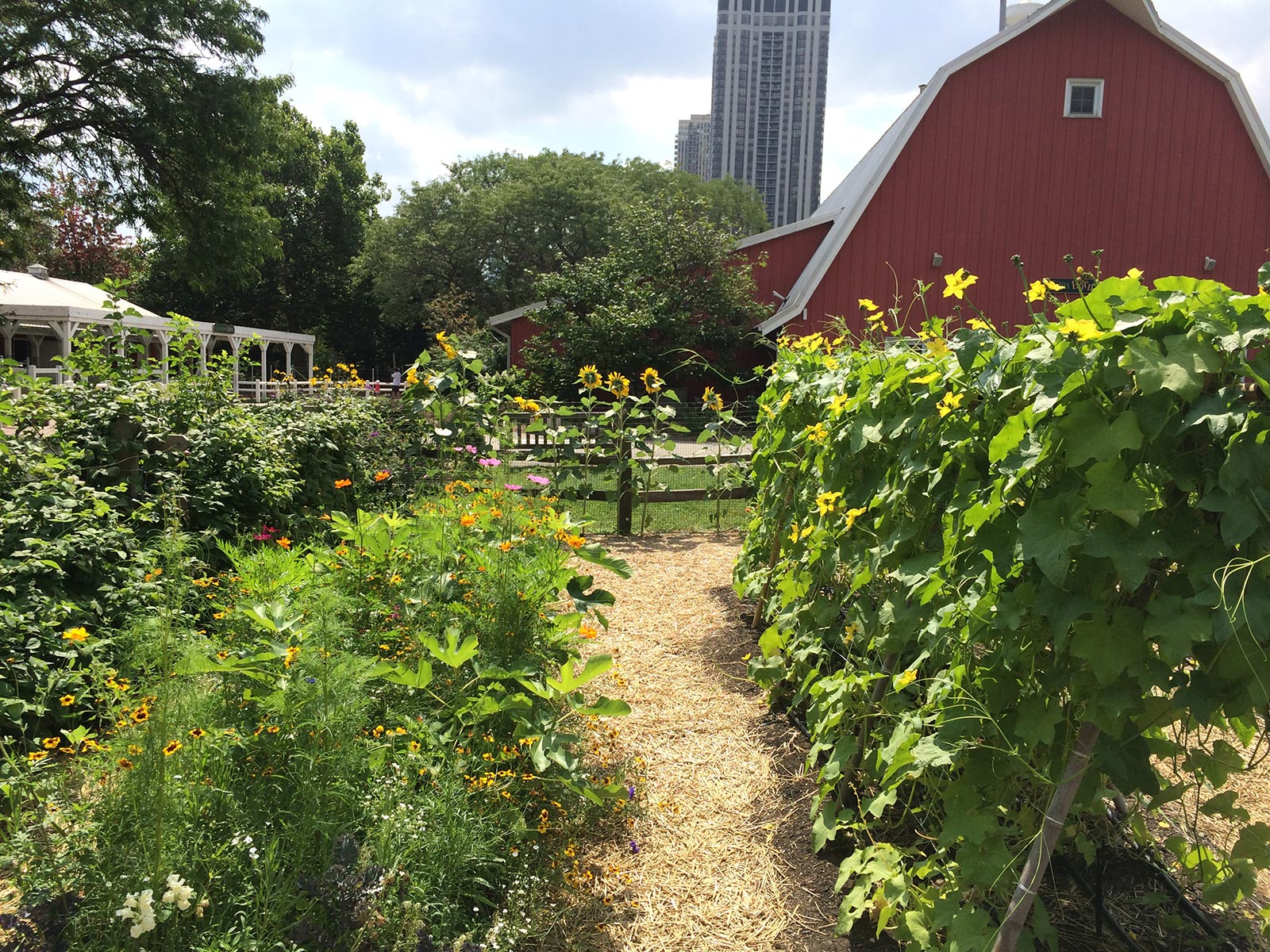
Certification can take many years and comes with costs, so Green City Market supports local farmers with scholarships to sustainable food conferences, small grants and weekly emails with opportunities for funding and continuing education.
“We work closely with our farmers so they can make a living wage,” said Melissa Flynn, Green City Market’s executive director. “We are cultivating a community of people who value their food. They have tasted the difference that local and organic makes, and we work hard to make it as easy as possible for people to access and use our farmers’ food year-round.”
The market partners with local chefs to offer free cooking demonstrations, and it’s rolling out a series of online videos to show people how to cook with seasonal ingredients. Edible Education programs expose children to healthy foods and gardening, and the kids in turn inspire their parents to come to the market to buy healthier foods. The market also offers a dollar-for-dollar matching program for lower-income shoppers, and is working with community partners to buy food directly from farmers to bring fresh produce to a local food desert.
“We have created a space where our farmers can build meaningful relationships with their customers,” said Flynn. “When vendors aren’t at the market, people ask about them. Our shoppers, farmers and chefs care about each other, and they are proud to be part of this growing regional food network.”
Producers continue to innovate
With more consumers seeking transparency in sourcing and nutrient-dense ingredients, Dr. Bronner’s and Pacific Foods recognize the importance of continual innovation to meet demand.
Dr. Bronner’s announced last September efforts to work towards regenerative agricultural practices that not only produce healthy food, but also mitigate climate change by sequestering carbon in the soil. To this end, it’s been working with Patagonia and Rodale Institute to design a regenerative agriculture certification that builds upon current organic standards to also include labor, soil health and animal welfare.
“We believe that agriculture can be part of the climate sustainability solution,” said Shiber-Knowles. “Regenerative practices can help lift communities out of poverty and support animal welfare. We are excited to work with existing organic certifiers to take organic to the next level.”
Meanwhile, Eggert Family Farms, a supplier to Pacific Foods and a family-run innovation incubator, is focusing on improved animal husbandry practices, as well as heirloom poultry breeds and feed production. It’s also striving to use everything on the farm — composting silage with worm castings and making compost tea for its feed crops.
“We’ll try anything,” said Eggert. “We use a lot of oregano in our feed to help with the animals’ immune systems. And we had a contest for our poultry team to design chicken coops that were more efficient and humane. We want people to think differently so we can lead by example among medium- to large-size organic farms.”
Having as many pictures of his cows as his grandchildren, Eggert takes pride in seeing his oldest cow give birth to a happy and healthy calf and his granddaughter stand up in a corn chopper and know exactly what to do. They are both symbols of hope for a vibrant, sustainable future led by businesses bold enough to do things differently.

